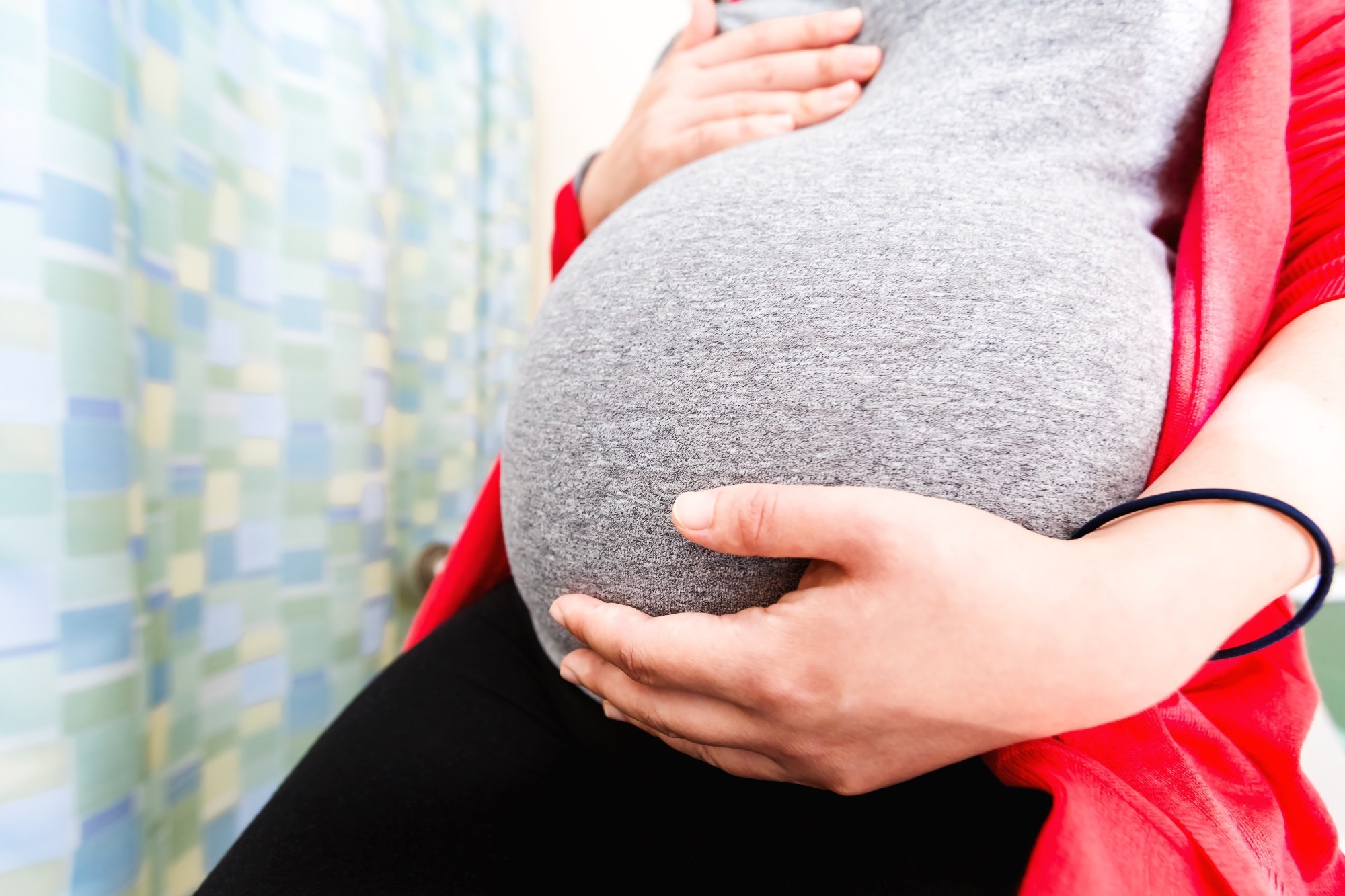The recreational and medicinal legalization of cannabis in many U.S. states has increased its use, particularly during pregnancy and lactation. However, there remains little clarity about the effects of cannabis use on obstetric and perinatal outcomes, as well as its long-term effects on the developing brain.

Study: Perinatal cannabis use. Image Credit: TierneyMJ / Shutterstock.com
Introduction
With the increasing use of cannabis during pregnancy and lactation, as well as the higher prevalence of cannabis use disorder (CUD), healthcare providers have been advised to screen for the presence of its metabolites during pregnancy and the puerperium.
As recently as 2002, cannabis use was reported by over 10% of Americans; however, by 2020, cannabis use increased to about 18%. This rise in cannabis use was observed in women of various ages; however, it was highest in those between 18 to 25 years of age at over 22%. Moreover, about 6% of these women indicate that they used cannabis almost every day.
Cannabis is sometimes used during pregnancy to alleviate depression, nausea, vomiting, and stress. In 2020, 8% of pregnant women said they had used cannabis over the past month, with about 3% reporting daily use. This is over two- and three-fold greater than 2002 estimates of 3.4% and 0.9%, respectively. Pregnant cannabis users are also more likely to use tobacco, alcohol, and illicit drugs than other pregnant women.
The legalization of cannabis in several states has led many to consider cannabis as a less dangerous drug to take during pregnancy. However, this is an unfounded perception, especially since the contamination of cannabis with other drugs increases the risk associated with its use during pregnancy.
Cannabis accumulates in the body’s fatty tissues as it crosses the fat-rich cell membranes. Thus, it may be detected for up to a month after the last use, especially in those who use it consistently.
Breastmilk contains about 1% of the maternal dose of cannabis adjusted for weight. Furthermore, cannabis can be detected in breast milk for up to six days after the last use.
Cannabis exerts its effects on the brain through the endocannabinoid system (ECS), with its receptors being acted on primarily by the cannabinoid compounds tetrahydrocannabinol (THC) and cannabidiol (CBD). THC, which is more psychoactive than CBD, affects both mood and cognition.
Some studies have reported that disruption of the ECS is linked to a higher rate of miscarriage and pre-eclampsia; however, stronger evidence is required. In addition, the ECS is critical to proper brain development.
CUD is associated with distress or functional disruptions linked to a pattern of cannabis use. Notably, the incidence of CUD is rising among women, especially those between 18 and 25 years of age, and among Alaska Native, American Indian, and multiracial women.
What did the study show?
Currently, available cannabis formulations have much higher THC concentrations than earlier products that have been studied, thus affecting the comparability of prior studies with more recent research.
Does cannabis use cause congenital anomalies to occur at a higher rate? The researchers could not find clear associations.
However, the risk of a baby being stillborn is higher with the use of illicit drugs in pregnancy. Nevertheless, the exact impact of cannabis use alone remains to be elucidated.
Evidence is conflicting regarding whether cannabis use during pregnancy is linked to preterm birth. There appears to be a link between cannabis use and low birth weight; however, this difference does not appear to be significant.
In some studies, cannabis use has been associated with a higher risk of neonatal intensive care unit (NICU) admission; however, these studies have conflicting results.
Long-term adverse neuropsychiatric outcomes have been reported in some individuals born to mothers who used cannabis during pregnancy or lactation. In fact, some researchers have reported jitteriness, tremors, and poor sleep in these babies. However, further research is required to validate these findings.
Impairments in memory, language, attention, and visual perception, with a 50% increase in autism risk, have also been reported. In addition, children of mothers who use cannabis have also been found to be more hyperactive, impulsive and had lower academic performance as compared to controls.
Nevertheless, some studies have shown that after following infants born to mothers who used cannabis during the perinatal period for up to four years, no differences were observed. One ongoing study reported transient aggression and poor attention span in girls born to cannabis-using mothers at 18 months; however, these differences appeared to resolve thereafter. Notably, the children in this study did not experience any impaired language or cognitive development.
What are the implications?
Current evidence on the potential adverse effects associated with cannabis use during pregnancy remain conflicting.
Many of these studies have failed to adjust for confounding factors including genetic and environmental exposures, maternal mental disorders, exposures to other illicit substances, as well as alcohol and smoking. Furthermore, very little is known about the outcomes of lactational cannabis use on the infant’s neuropsychological or motor development.
Nevertheless, it is important for healthcare providers to discuss cannabis use and its potential risks with their pregnant patients.
Legality does not equate to safety in pregnancy.”
There needs to be a strong focus on correcting the current lack of information among physicians and other providers, as well as the general population, that allows clinics to support the practice of using cannabis to relieve psychological and physical symptoms related to or worsened by pregnancy. Alternative methods should be suggested, preferably before conception, in a supportive environment.
Finally, more research is urgently needed to allow better recommendations to be made about perinatal cannabis use. These studies should also establish a unified framework of use so that cannabis use during pregnancy can be identified, discussed, and discouraged based on the current state of knowledge.